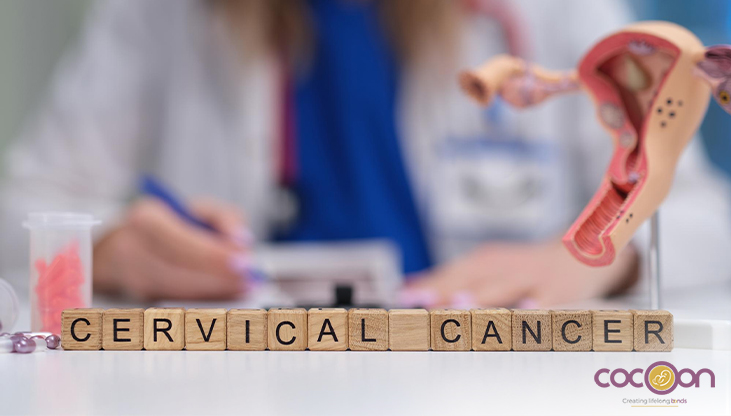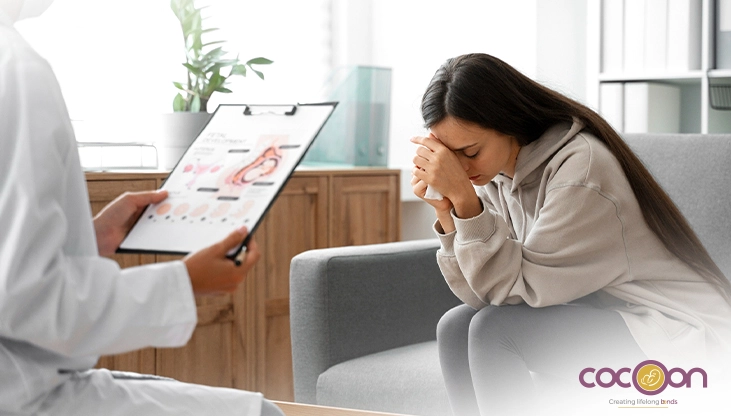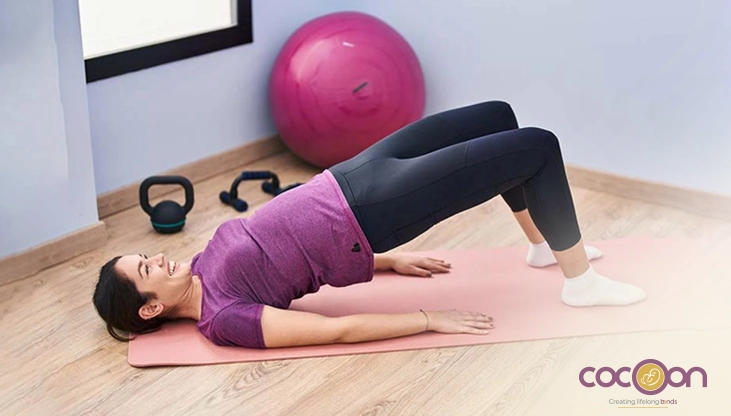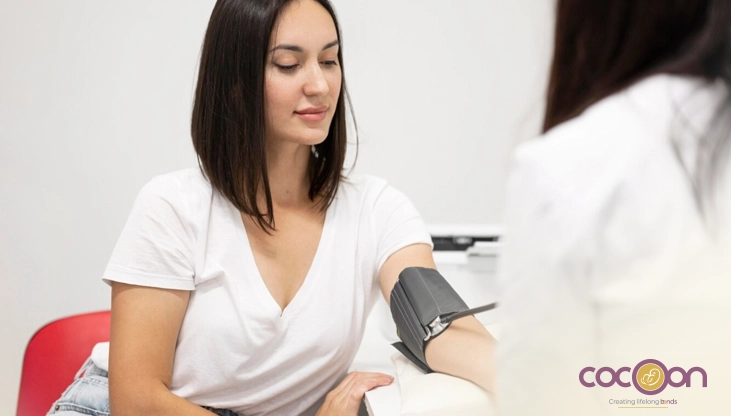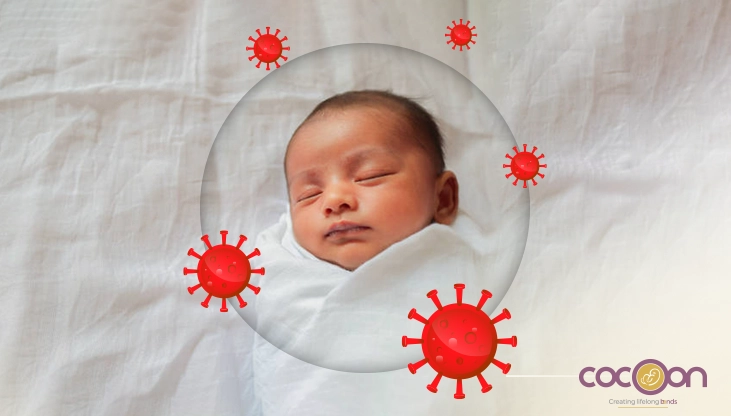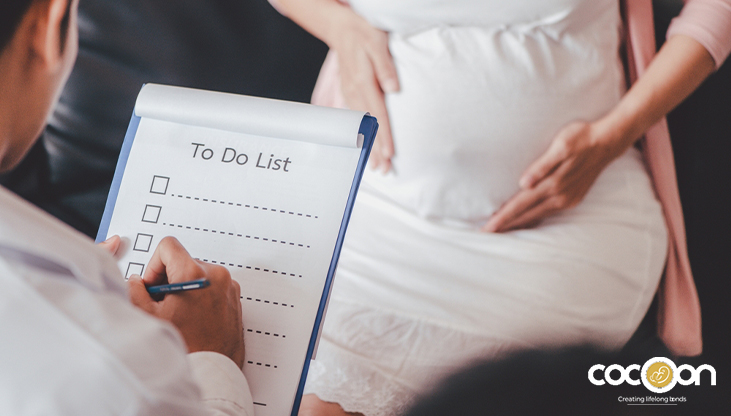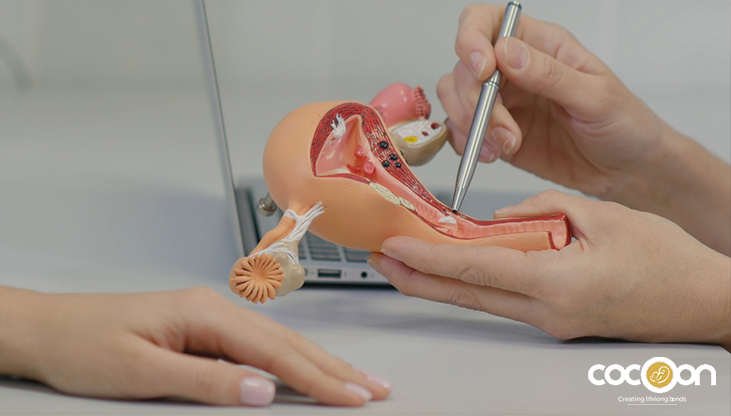Postpartum brings physical, mental, and emotional changes to a woman's body. A woman can experience vaginal discharge (lochia), breast fullness, hair fall, constipation, etc. But don’t worry; these are just usual parts of natural healing processes.
However, postpartum symptom recovery can sometimes be challenging, especially when mental and emotional well-being are affected. Feeling low, anxious, or overwhelmed is common, but if these feelings continue, it’s crucial to talk to a doctor to help navigate your feelings. Additionally, adopting postnatal wellness tips like balanced nutrition, gentle exercise (once your doctor approves), hydration, and adequate rest can make a big difference in faster physical and mental recovery.
Understanding what’s normal and when to seek professional help makes recovery smoother and safer. That’s why this postnatal wellness guide is so essential for every new mom.
Read Also: Luxury Birthing: What Makes a Premium Maternity Experience?
Postpartum Care Tips For Faster Recovery
Postpartum (or postnatal) is the period after childbirth. Usually, the postpartum period is the first 6 to 8 weeks after delivery, or until your body rebounds to its pre-pregnancy state.
However, there are postpartum symptoms like fatigue, back pain, and postpartum depression changes that can last far beyond eight weeks. This is why you need to be aware of these tips to recover faster:
1. Take Adequate Sleep & Rest
Rest whenever you get a chance, even if it's a short nap.
How it helps: Your whole body and mind recover faster because when you sleep, your body's healing process works more efficiently.
2. Say Yes to Nutritious Meals
Eat a diet rich in iron, protein, and vitamins. Example: Nuts and seeds, dark leafy green vegetables
How it helps: They give an adequate amount of energy and replenish lost nutrients. Nutritious meals mean low fatigue, tissue repair, and better breastfeeding.
3. Keep Yourself Hydrated
Drink plenty of water each day. Experts suggest about 16 cups (128 ounces) of water daily while breastfeeding.
How it helps: Hydration aids digestion and keeps breast milk flowing. It helps lower the risk of constipation and improves skin and breast health.
4. Recommended Pelvic Floor Exercises
Practice gentle exercises such as Kegels under guidance to strengthen the pelvic floor.
How it helps: Improves bladder control and reduces urine leakage by speeding up the recovery of the pelvic area.
5. Light Postnatal Exercise After Doctor’s Approval
Light activity like walking, swimming, gentle yoga, Pilates, and low-impact aerobics helps improve circulation.
How they help: Reduces leg swelling, maintains energy levels, and improves mental health.
6. Postpartum Clothing Essential
Wear postpartum belts or supportive underwear so that you do not experience any tummy discomfort.
How it helps: Abdominal muscles get the necessary support, and it cushions the back during recovery.
7. Wound and Incision Care
Keep stitches or incisions clean and dry to avoid infection and promote healing.
How it helps: Quicker recovery for perineal, vaginal, or C-section wounds.
8. Breastfeeding Help
Experts recommend breastfeeding, as it's your baby's only source of nutrition until age 6 months. You can get advice from lactation consultants for easier breastfeeding.
How it helps: The experts can help you teach proper breastfeeding methods to ease breast pain, help milk production, and support nipple healing.
9. Manage Stress
Practice relaxation techniques like deep breathing, meditation, or gentle stretching to lower the stress level.
How it helps: Lower stress means better mental health, sleep quality, and emotional recovery.
10. Reach Out for Help
Do not hesitate to seek help from family or friends to talk about what you are experiencing.
How it helps: Reduces exhaustion, stabilizes mood, and you don't feel alone or isolated.
Read Also: Essential Tips & Preparation for a Smooth Normal Delivery
Postpartum Symptoms That Require Medical Attention
After delivery, your body can heal and regain its shape, function, and strength. However, there are certain postpartum symptoms that you shouldn’t ignore; instead, seek timely help.
Here are the postpartum symptoms that require immediate medical attention.
- Heavy vaginal bleeding
- Persistent severe headache
- Vision blurring or seeing spots
- Persistent chest pain, coughing
- Difficulty breathing
- Pain, swelling, redness, or warmth in one leg
- Fever higher than 100.4°F (38°C)
- Foul-smelling discharge from the vagina
- Severe lower abdominal pain
- Frequent painful urination
- Lower back pain
- Thoughts of self-harm or harming the baby
- Palpitations, or rapid heartbeat,
- Seizures or convulsions
- Confusion, dizziness, or fainting
Postnatal Symptom Recovery Time
The postpartum recovery period is different for every woman, as they have different healing processes; some recover faster, some slower. To recover faster, all you need is to follow the postpartum care tips and the doctor’s advice.
Here’s an approximate recovery timeline for some postnatal symptoms.
| Postnatal Symptoms | Average Recovery Time (in weeks) |
| Lochia (vaginal bleeding) | 2–6 |
| Perineal pain/soreness | 3–6 |
| C-section incision healing | 6 |
| Breast engorgement | 1–2 |
| Constipation | 2 |
| Hair shedding and thinning | Several weeks to months |
| Postpartum blues | 2 |
| Postpartum depression | Weeks to months or longer with treatment |
| Perineal swelling | 1–2 |
| Urinary changes (leakage) | 6 |
Conclusion
Bringing a new life into the world is an exciting, challenging, and remarkable journey that takes a toll on your body and mind. That’s why, after delivery, taking care of yourself is essential even while caring for your baby. All you need is to reach out for the right support and prioritize your recovery so you can stay healthy, energized, and fully present for your little one’s needs and growth.
FAQs
Q1: What are the postpartum diet tips?
A: Postpartum diet tips include:
- A balanced diet with sufficient amounts of protein.
- Seasonal fruits and vegetables, whole grains, and healthy fats.
- Stay hydrated and avoid processed foods to support healing and breastfeeding.
- Avoid processed foods and excessive sugar and salt.
Q2: How to take care of mental health after childbirth?
A: Mental health tips after childbirth include:
- Prioritize rest and sleep (healing gets sped up while resting)
- Be Aware of postnatal mental health symptoms
- Seek professional help
- Talk about your feelings openly with your loved ones
'
Q3: What are the 5 important aspects of postnatal care?
A: Here are the 5 important aspects of postnatal care:
- Rest and nutrition
- Wound and perineal care
- Pelvic floor exercises
- Breastfeeding support
- Mental health monitoring
Q4: What is the 5-5-5 rule for postpartum recovery?
A: The 5-5-5 rule for postpartum recovery means:
- 5 hours of sleep
- 5 meals a day
- 5 minutes of daily light exercise
This rule is a short guideline to help women recover well after childbirth.







